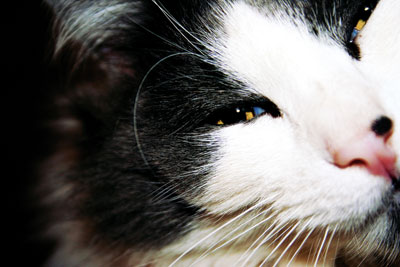All Nonfiction
- Bullying
- Books
- Academic
- Author Interviews
- Celebrity interviews
- College Articles
- College Essays
- Educator of the Year
- Heroes
- Interviews
- Memoir
- Personal Experience
- Sports
- Travel & Culture
All Opinions
- Bullying
- Current Events / Politics
- Discrimination
- Drugs / Alcohol / Smoking
- Entertainment / Celebrities
- Environment
- Love / Relationships
- Movies / Music / TV
- Pop Culture / Trends
- School / College
- Social Issues / Civics
- Spirituality / Religion
- Sports / Hobbies
All Hot Topics
- Bullying
- Community Service
- Environment
- Health
- Letters to the Editor
- Pride & Prejudice
- What Matters
- Back
Summer Guide
- Program Links
- Program Reviews
- Back
College Guide
- College Links
- College Reviews
- College Essays
- College Articles
- Back
Animal Maltreatment
Although there is a law against it, animals are maltreated all the time. Under the Vermont Cruelty of Animals Statute, it is stated that, “A person commits the crime of cruelty to animals if the person: deprives an animal which a person owns, possesses or acts as an agent for, of adequate food, water, shelter, rest or sanitation.” This issue is personal for me because I have seen and interacted with both poorly-treated animals and well-treated animals, and this has made me aware of the effects of poor treatment. I advocate for the proper treatment of animals because they are creatures who live on the same earth as us, and therefore should be treated with respect.
I see animals being treated kindly every day, and I appreciate the diligence and consideration of people who care for their pets or wildlife. Although this is something I value, I often take it for granted because I see it so frequently.
The most memorable time that I was confident in animals’ being treated with respect and kindness was at the Humane Society of Chittenden County. Before I began volunteering to help take care of homeless pets, the leaders of the organization made it clear that despite minimal space and limited funds, it was a no-kill shelter. This indicated that the animals in the shelter, regardless of age or likelihood of being adopted, could stay as long as needed. This was important to me because it meant that every animal admitted to the Humane Society would be taken care of and not neglected. This shelter represented a place of importance because people could have faith that the organization would not abuse a pet or ever put a time limit on its life. The building was also kept neat and tidy and the animals had proper locations with care given as needed, a key piece to the process. With a clean place to live, necessary exercise, food and water given to the pets in the Humane Society, they were one step ahead of many other shelters. Yes, they may not sleep on plush beds filled with goose feathers but they’re being treated properly and with respect.
The most striking time I experienced animals being treated very poorly was on a service trip in which I traveled to West Virginia with adults and other students my age. On this trip, I visited the homes of people who needed help from Habitat for Humanity. While I was volunteering for this organization, I discovered a total of three dogs tied up at one home. I was working on building a different house in the neighborhood at the time but seeing the dogs tied up with a chain outside the other house was very appauling. The dogs had no food or water despite being clearly hungry and thirsty. Just looking at their bodies, I could see their ribs and their tongues were as dry as sandpaper. The dogs were so caked in mud from rolling around that when I patted them, the dirt from their fur rolled off into the air. They did have a shelter of sorts but it consisted of only a clearly worn plastic “doghouse,” no larger than the size of one dog, despite it supposedly housing three. It had holes in the top, but they did not protect from the weather. It was obvious they lived this way on a regular basis when I came back later in the week to visit the house nearby. The dogs were in the same spot with chains around their necks that had harshly worn into their skin, suggesting they hadn’t been removed for months. This brutal treatment of animals is hopefully an extreme although much too common. The most reasonable explanation for this behavior is that either the owner did not have enough money or time to provide for the dogs, or did not care enough to do anything about it.
In order to fix the problem of animal mistreatment, I believe people should only be in possession of them if they have enough resources to sustain properly taking care of them. It is quite simple, if the means to take care of the animal exceeds what someone may have, that someone should not have the animal. For example, if someone did not have enough extra money to spend on dog food, they should not have a dog. I believe if this was implemented to everyone, everywhere, in a perfect world, the mistreatment of animals would almost disappear because it would be impossible for someone to own an animal without the funds or time to take care of one. The only exception would occur if someone did have the funds and time available but chose not to care for their animal(s). A situation we consider inhumane and cruel.

Similar Articles
JOIN THE DISCUSSION
This article has 0 comments.
